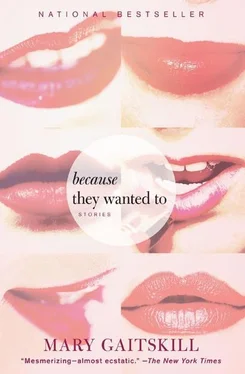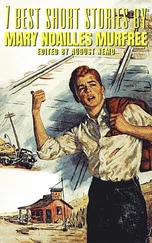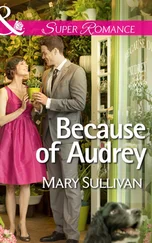“Well, his behavior is strange,” said Pamela. “Because he certainly gave you every reason to believe he was interested.”
The dentist’s rigorous and polite reliability impressed Jill, who had not often seen such behavior in men. She had left home at sixteen to live with a commercial artist almost fifteen years older than she was, and although the affair only lasted three years, she left it in a state of unfortunate attunement to the kind of refined, convoluted fellow who likes to make a very fancy mess. She had put herself through school with five years of work in various strip bars and go-go joints, and, at the age of twenty-six, had entered into journalism with the publication of an essay about down-and-out jazz musicians in a trendy men’s magazine. Because of the unusual career segue, she had few professional acquaintances and almost no experience with the sort of mundane camaraderie that makes up the common social staple; thus her baseline emotional life had consisted mainly of going from one loud mess to the next. To her, the dentist’s simple and undemanding generosity looked like a shining piece of integrity, which aroused first her surprise and then her admiration. Admiration didn’t develop into love right away, though, and the first time she called him, she did so reluctantly. It was, after all, one in the morning, but the computer had disobeyed her at a decisive moment, and he had said anytime.
He greeted her as if he had been waiting alertly for her call. As he solved her problem, their conversation dipped and bumped along easily. He complained mildly about difficulty he was having with a lab he used. He told her about an old movie he had seen on TV that evening, called Hot Rods to Hell, in which a father (played by Dana Andrews) is terrorized and humiliated by sexy youths but eventually triumphs over the youths. The dentist compared it favorably to newer humiliation/triumph-based movies he’d seen recently. His disembodied voice was gentle and authoritative, and had an under-tone that sounded thwarted, feisty, and playful at once. She pictured him in an apartment made up of utilitarian oblongs, gray shadows, gleaming limbs of furniture, and an entertainment center, all alone with his thwarted feistiness.
“George?” she asked. “Are you happy?”
“Pretty much,” he answered. “Why wouldn’t I be?”
She hung up feeling enveloped and upheld by his “Why wouldn’t I be?” His tone seemed to acknowledge all that might threaten happiness—“It’s something that can happen sometimes and it’s nothing to worry about”—and then to shoulder it aside as if the important thing was to get through life somehow, to extract teeth, to follow the schedule, to do what you said you would do. This was a new point of view for Jill, and it affected her profoundly. She finished her article quickly and went to bed feeling an unfamiliar species of warmth and comfort. She woke imagining the dentist holding her from behind, and she prolonged the image, allowing it to become a thought.
That day she sent her article to the magazine that had commissioned it and, since her jaw was feeling better, arranged to have dinner with her friend Joshua. Joshua was a frustrated musician. He was frustrated mostly by himself. He had achieved a modest success in Boston and then come to San Francisco to pursue a hopeless infatuation with a lesbian who didn’t even like him as a person. He claimed the experience had damaged his “voice,” and now he worked as a cabdriver, occasionally managing a sit-in gig for some obscure band. Joshua was very intelligent and very dear, and like many people who have difficulty managing their own lives, his opinions and advice were often excellent. They went to a cheap Thai place in the Mission. Jill told the story of the dentist as if it were a funny joke.
“He’s a total nerd,” she finished. “He’s the kind of guy who says All righty’ at the end of conversations. Of course, I’m not really attracted to him. But it’s funny that the thought even crossed my mind, don’t you think?”
“I don’t know,” said Joshua thoughtfully. “I can see it, actually.”
“See what? What’s there to see?”
“Well, it’s like—remember when those weird thieves broke into my apartment?”
He was referring to the time a spectacularly eccentric thief or thieves had broken into the house he shared with three other people and apparently meandered through it, stealing a scarf, two pairs of pants, an address book, a Sonic Youth tape, and the contents of the mailbox.
“They took my unemployment check, and I had to go through this ordeal of getting it canceled, which meant I had to officially sign up for benefits again. Which meant standing in line at the unemployment office and explaining my situation and being told I was in the wrong line—it went on all day, and still it wasn’t fixed. And that’s the kind of thing that drives me crazy.”
Jill murmured sympathetically.
“So I had to come back the next day and wait in yet another line. I was almost at the end of my rope when this woman who worked there overheard me talking to another clerk about it, and she said, ‘Come over here, I’ll help you.’ And not only did she help me, but she turned the whole experience into this really nice exchange.”
“Was she good-looking?” asked Jill.
“Not especially. She was a middle-aged woman with a smart haircut. She had on a nice blouse with tiny polka dots, which I always like. But what really made me respond to her was that when these people just behind me in her line started bitching, she yelled out this funny comment off one of their complaints and made them laugh. That opened up the experience and made it okay to be standing there in line. I felt really attracted to her because she could do that.”
“Enough to ask her out?”
He shrugged. “It was more ephemeral than that. Sort of like what you’re describing. But it was a great little moment.”
“Yeah,” she said. “It is like me and the dentist. You and I are so inept at practical details that when the practical details are, like, exploding in your face, and suddenly there’s someone who can not only straighten it out for you but who seems to embody a whole universe where these disasters are just taken in stride, you’re going to be incredibly grateful. Like, yes, there is an emotional hell that can’t be fixed, but on the other hand, there’s the dentist and the unemployment lady working away making things go smoothly at least on some level.”
“And who also acknowledge the emotional hell,” said Joshua. “Like the polka-dot lady with her joke.”
“Yes! Exactly.”
“What’s interesting about the dentist, though . . .” Joshua paused, and his face became uncharacteristically sly. “He’s solved your problems, but he also caused them to a certain extent. I mean, he hurt you.”
They finished dinner and relocated to a dark little bar. They sat in a booth with sticky wooden seats and steadily drank. Joshua described a TV show he’d seen, about an experimental program being conducted by some prison systems that enabled victims and their families to confront the criminals who had victimized them. He described the emotional scene between a thief and the clerk he’d shot, each of them telling the other what the robbery had been like for him—the clerk refraining, “Why did you do that to me?” until the robber apologized and they embraced with a great deal of emotion.
Jill was interested, but as she settled more comfortably into drunkenness, she found it hard to concentrate on the story; she was distracted by the memory of the dentist’s disembodied voice issuing instructions over the phone. “I want you to press ‘alt,’” he said inside her head. “Good. Now I want you to go to file.”
Читать дальше












